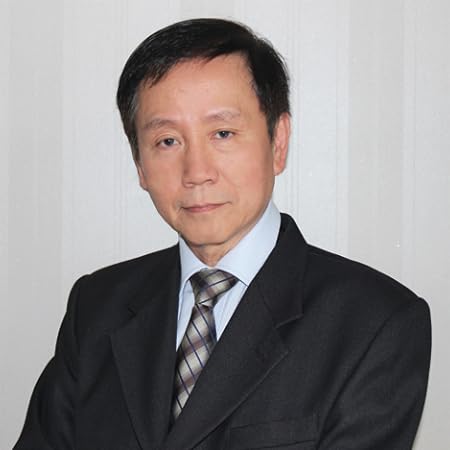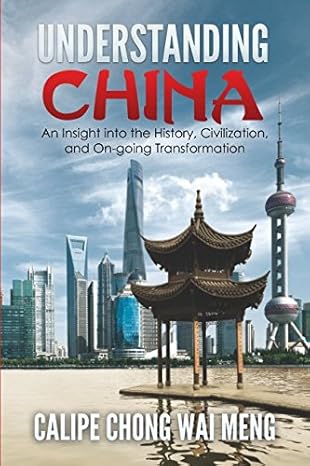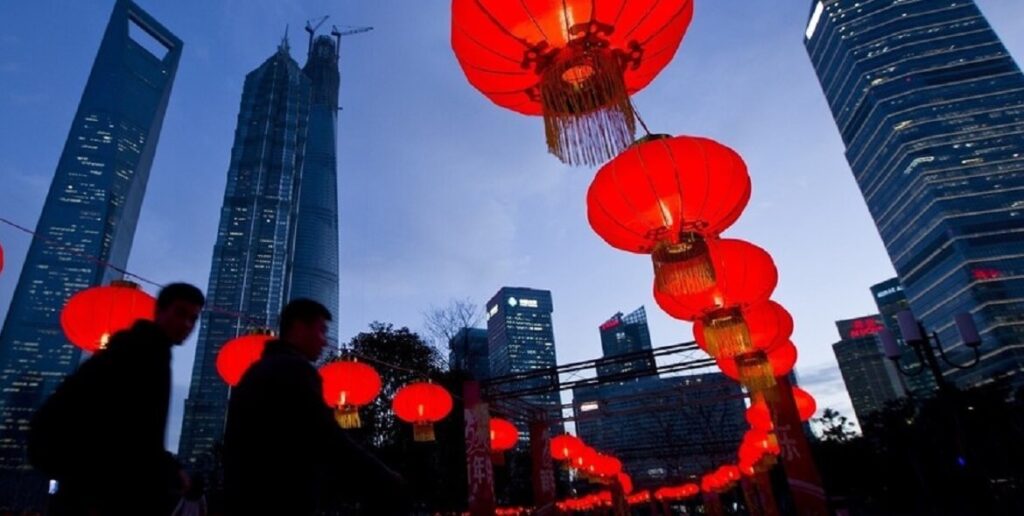World Geostrategic Insights interview with Calipe Chong about China’s strengths, its role in the world, and how to remove cultural barriers, misunderstandings, and prejudices between China and other countries, especially Western countries.

Calipe Chong is a Singaporean expatriate who has been working and living in China since 1997. He is managing director of VIPO Asia, a Singapore-led supply chain services company operating from Suzhou, China, which assists foreign clients in finding buyers, sellers, joint ventures strategic partners, markets and distribution in China and ASEAN. Calipe is the author of the book “Understanding China: An Insight into the History, Civilization, and On-going Transformation“, in which he shares his insights and experiences gained from living and working in China.
Q1 – In the introduction to your book, “Understanding China: An Insight into the History, Civilisation, and On-going Transformation”, you state that you are not trying to exaggerate China’s achievements or praise its glory and power. You only aim to present what it was before, what it has gone through and what the nation is now. You also emphasize that knowing the strengths of the Chinese is what makes it possible to be successful in relations with them. Can you summarize here your view on what China is today, and what are its strengths?
 A1 – China has found its lost self-assurance and pride in its culture, history, and wisdom. These were lost during its humiliation under the siege of the Western powers in the 19th and 20th centuries. Technological developments, intellectuality, harmony, and benevolent and civic social behaviors have been revitalized due to the resurgence of self-confidence and a strong desire to achieve a comfortable lifestyle for the family. China has progressed rapidly in infrastructure development and technological advancements in various fields, including the military and space. Many countries are startled or cannot believe in its new inventions, discoveries, innovations, and developments in such a short timeframe and scope of work. They also do not believe China does not possess any desire to occupy their lands and resources or turn into a formidable colonial power.
A1 – China has found its lost self-assurance and pride in its culture, history, and wisdom. These were lost during its humiliation under the siege of the Western powers in the 19th and 20th centuries. Technological developments, intellectuality, harmony, and benevolent and civic social behaviors have been revitalized due to the resurgence of self-confidence and a strong desire to achieve a comfortable lifestyle for the family. China has progressed rapidly in infrastructure development and technological advancements in various fields, including the military and space. Many countries are startled or cannot believe in its new inventions, discoveries, innovations, and developments in such a short timeframe and scope of work. They also do not believe China does not possess any desire to occupy their lands and resources or turn into a formidable colonial power.
China has also regained the strength that its ancestors possessed over the past millenniums. They are:
– Perseverance, smart and hardworking;
– Inquisitive minds leading to countless inventions, innovations, and ideas;
-Philosophical mindsets are generated into ideologies, cultural norms, social behaviors, and wisdom;
– Confucianism, Taoism, and military strategies such as “The Art of War” are good examples of such ideologies;
– China keeps a good record of its history and appreciates the wisdom, politics, shrewdness, and governance it learned. It uses the lessons to tackle complex foreign policies with friendly and adversarial countries;
– The general public is obedient and follows the instructions or commands from the higher authority, making the nation cohesive as long as their primary needs (food, clothing, house, safety, and income) are met. That is why the factories have no problems garnering the support and dedication from the workers for the long, extended working hours and improving the quality of work;
– Chinese are brought up to practice filial piety and obedient to elders and leaders. They are not preoccupied with foreign religions, such as Judaism, Christianity, and Islam, where religious beliefs supersede all other beliefs.
Q2 – China is widely recognised as one of the world’s strongest economies. But at the same time, the Chinese model of economic development and democracy raises fears. A widespread narrative in Western media and politics sees China as a potential challenger to the United States as a dominant world power and a threat to Western values. What is your opinion? Does China’s rise and assertiveness on the global stage pose a potential threat to the stability of the international order and to the Western countries? How do you see China’s role in the world?
A2 – Malevolent Western politicians, academics, and journalists perpetuate the demonizing of China. They are bribed, have a personal agenda or political gain, are gullible, or show common interest with peers and relatives. China does not raise fear among others. It is the unfamiliarity of China’s characteristics and behavior that caused Western countries to be fearful of China. The Western power wants China to respond like all other developing countries and to be docile. They want China to remain an under-developed country that manufactures low-end products. Hence, Western powers cannot accept China’s development of high-end products with superior technologies and the help of many countries to beef up their infrastructure projects. They cannot afford the loss of market share and superiority that they have enjoyed in the past centuries.
They pass disinformation, fabrication, and acrimonious rhetoric to sow hatred and dislike among the masses when they need to shift the blame to China to hide their failures and incompetency. They need to continue to make more lies to cover the earlier lies so that there is no turning back to the truth. Western powers lack a strong leader to concede the lies in front of the public.
Many foreigners who had visited China recently for the first time shared their startling experiences and joy on social media and YouTube. And they also lamented about the retorts from fellow countrymen on the accusation of passing fake news and receiving bribes from the Chinese government.
China’s unique civilization has been practiced for over 4,000 years, comprising ideologies, philosophies, culture, literacy, customs, beliefs, behaviors, arts, medicine, and culinary. No other nations or civilizations could retain those virtues for that long. China was weak, timid, and submissive during Western colonization. Many foreign countries have either forgotten or are unaware that China was a great nation and civilization for thousands of years before the emergence of the Western power.
China has never invaded or occupied other foreign countries or lands throughout its history, and this continues today. It has demonstrated to other countries that China wants friendship, peace, business opportunities, and cultural exchanges. China has received support and acceptance from many countries, thus giving it a strong leadership role in the geopolitical arena. The One Belt One Road Initiative, BRICS, ASEAN Partnership, and the construction of various infrastructures in many countries, including the USA and EU, are good examples of China promoting good faith with as many nations as possible. However, it will hit back to ensure the bullying country stops its vicious acts.
I do not believe China wants to challenge or belittle other nations unless forced to. The US government’s weaponization of US dollars and treasury bills against its adversaries has taught China to get rid of the USD and US Treasury Bills it holds on hand. China believes the US will use the same tactics on Russia to ensure China will not overtake the US. The tit-for-tat will stop only when the US stops its vicious acts.
The Western power’s International Order is outdated, irrelevant, and loathed by many other countries. China does not oust this Western Order on its own. It is a concerted effort by many countries that are being bullied, or the Western countries are ripping off their wealth.
China does not want to lead the world against the Western powers. It dislikes getting into geopolitical disputes with them. The Chinese want to earn a living so their families can live graciously. Unfortunately, the onslaught by the US against other countries, and especially China, has led China to reluctantly assume leadership and lead the developing world to a brighter future and prosperity while leaving the Western powers to their destiny.
Western powers, which still hold on to their colonial past, dominate other governments, and meddle in their internal affairs, will lose the respect, dignity, and support they had once enjoyed from the rest of the world.
Q3 – The Chinese philosopher Han Feizi stated in the 3rd century that “if the key to relations between states lies in the close ties between peoples, the intimacy between them lies in their mutual understanding”. What could be done nowadays to remove cultural obstacles, misunderstandings and prejudices and to strengthen dialogue and build consensus between China and other countries, especially Western ones?
A3 – I do not recall seeing this statement, “If the key to relations between states lies in the close ties between peoples, the intimacy between them lies in their mutual understanding,” in books on Han Feizi or legalism. The central thesis of Legalism, in which Han Feizi was a prominent follower, is that appropriate punishment and rewards must be given for the deed one rendered. Unfortunately, as I had written in my book, “Understanding China,” most Chinese emperors applied harsh punishments to people they did not like and fewer rewards to officials who had done great jobs.
Cultural obstacles are fruitless to remove. One must learn to appreciate other cultural differences or avoid that culture. You do not have to accept that culture; you must treat it respectfully and learn to deal with it. Only then will you be successful in the midst of a foreign culture. Many foreigners are learning about Chinese culture and language. They are happy and doing well in China.
Calipe Chong – Managing director of VIPO Asia, author of the book “Understanding China: An Insight into the History, Civilization, and On-going Transformation“.
Image Credit: Reuters/Aly Song.







